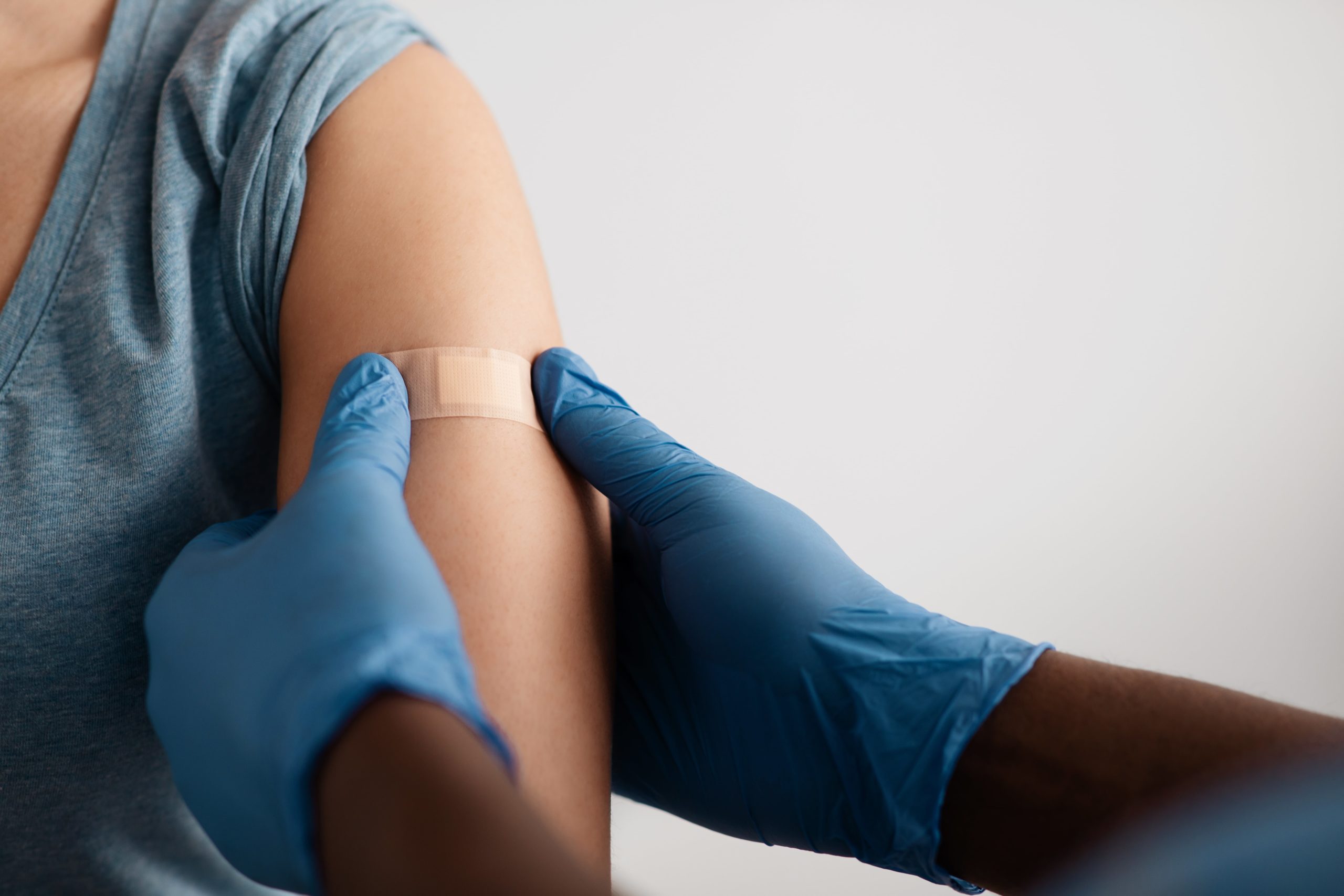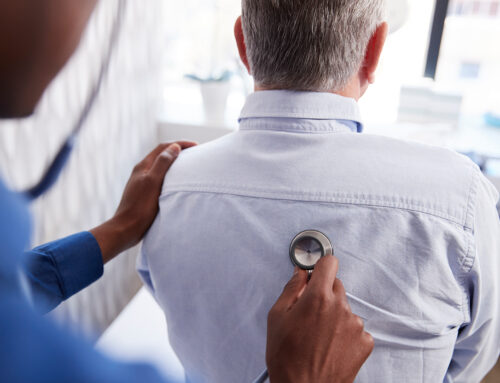Since March of 2020, the question on everyone’s minds was: when will the COVID-19 pandemic end? Two and a half years since the Coronavirus pandemic began, we are experiencing the most infectious and transmissible variant yet and COVID-19 cases are back on the rise. While that may be disappointing news, we have made progress with vaccinations and there are still ways to protect yourself and your family. Most importantly, you should keep yourself updated on the latest news and protocols when it comes to COVID-19 infections.
The latest variant, BA.5, along with the closely related BA.4 variant, are currently causing a global surge in cases. According to the World Health Organization (WHO), COVID-19 cases are up 30% worldwide over the first two weeks of July. In the United States alone, the Centers for Disease Control and Prevention (CDC) reports that the BA.5 variant accounted for 65% of new cases, just in the last week. The CDC also believes that the official numbers undercount the number of actual cases, which may be 10 times higher. This discrepancy can be attributed to the use of home tests and lack of official reporting.
How Can You Continue to Protect Yourself?
While the newer COVID-19 variants are more transmissible, we now have ways to protect ourselves that don’t require us to put a halt in our daily activities. Most importantly, it is recommended that everyone stays up-to-date with the vaccine recommendations and availability.
While vaccination will not necessarily keep you from getting the virus, staying up-to-date on your COVID -19 vaccines continues to be the safest way to protect yourself against severe disease, hospitalization, and death. That goes for adults, adolescents, and children.
Currently, the CDC recommends the COVID-19 primary series vaccines for everyone ages six months and older. Children that are aged five and up can now receive their first booster and adults ages 50 and older can receive a second booster.
Those who are moderately or severely immunocompromised have specific recommendations for COVID-19 vaccines, including booster shots, and should talk to their doctors to learn what vaccine is right for them. Moderately or severely immunocompromised patients can include:
- Patients receiving active cancer treatment for tumors or cancers of the blood
- Patients who have received an organ transplant and are taking medicine to suppress the immune system
- Patients with moderate or severe primary immunodeficiency
- Patients with advanced or untreated HIV infection
- Patients undergoing active treatment with high-dose steroids or other drugs that may suppress their immune response
While vaccines are the best way to protect yourself from severe illness, masks are still considered the best way to protect yourself and others from actually spreading the virus, especially in large indoor group settings. High-quality N95 masks or equivalent are recommended in high-risk, crowded settings. Spending as much time as one can outdoors is also helpful in slowing the spread.
What Are the Most Common COVID-19 Symptoms?
As we’ve learned, the COVID-19 virus can trigger a wide range of symptoms that differ from patient to patient. You do not need to have all the symptoms listed to be positive for COVID-19, but you should know that the most common symptoms are:
- Fever or chills
- Sore throat
- Congestion or runny nose
- Cough
- Shortness of breath or difficulty breathing
- Fatigue
- Muscle or body aches
- Headache
- A recent loss of taste or smell
- Nausea or vomiting
- Diarrhea
I Have COVID-19, Should I Seek Emergency Assistance?
While most cases of COVID-19 are luckily able to be treated at home, there are times when emergency assistance may be needed. You should contact 911 or visit the emergency room if you have:
- Trouble breathing
- Persistent pain or pressure in the chest
- New confusion
- Inability to wake or stay awake
- Pale, gray, or blue-colored skin, lips, or nail beds, depending on skin tone
- Oxygen saturation below 93%
What Should I Do If I Test Positive for COVID-19?
The first thing that you should do if you test positive for COVID-19 is let your doctor know as soon as possible. Some people who are at increased risk for severe illness may be prescribed an oral antiviral treatment or advised to have IV monoclonal antibody therapy, both of which can reduce the risk of hospitalization and death.
Multiple treatment options have now been approved for COVID-19. Bebtelovimab is currently one FDA-approved monoclonal antibody treatment used to treat adults and children over the age of 12. If you are not hospitalized, have tested positive for COVID-19, and have mild to moderate symptoms, you may be eligible for this treatment. But, of course, your doctor will advise you on the right treatment for you. In addition to Bebtelovimab, the FDA has authorized the oral antiviral medications Paxlovid and molnupiravir, which have been shown to lower the risk of hospitalization and death in people who are at increased risk of severe COVID-19 illness.
Most patients who are less at risk of severe illness and have mild symptoms will be advised to recover at home. If you are recovering at home, you should get plenty of rest, stay hydrated, and take over-the-counter medications, such as acetaminophen and ibuprofen for symptomatic relief. Make sure to follow the correct dosing as indicated on each medication and call your doctor should you have any dosing questions.
Quarantine and Isolation
If you have been in close contact with someone who has tested positive for COVID-19 and you are up-to-date on vaccinations, there is good news: there’s no need to quarantine. You should, however, wear a mask when around others for 10 days and take a rapid antigen or PCR test on day five. If COVID-19 symptoms develop within that time, follow the isolation protocols below:
- If you have been in close contact with someone who has tested positive for COVID-19 and are NOT up to date with vaccine recommendations, you are advised to quarantine for 10 days. However, you can end quarantine earlier with a negative test on or after day five.
- If you test positive for COVID-19, you are to stay home and isolate yourself for at least five days. If symptoms are improving or have resolved on day six, you can return to activities while wearing a mask at all times. A mask must be worn around others for 10 days. If you are unable to wear a mask, you are to stay home and isolate for 10 days. The day of a positive test or symptom onset is considered day zero. Re-testing during isolation is not required but may help determine if you continue to be contagious.
The Coronavirus pandemic has presented hardships for many over the course of almost three years. While there has been progress with vaccinations and a lot that we’ve learned, the pandemic is not over and cases continue to rise. With this information, we hope that you are now up-to-date and informed on the latest variants and all of the ways to continue protecting yourself. Stay safe and healthy this summer!

The TopLine MD Alliance is an association of independent physicians and medical practice groups who are committed to providing a higher standard of healthcare services. The members of the TopLine MD Alliance have no legal or financial relationship with one another. The TopLine MD Alliance brand has no formal corporate, financial or legal ties to any of the affiliated physicians or practice groups.




